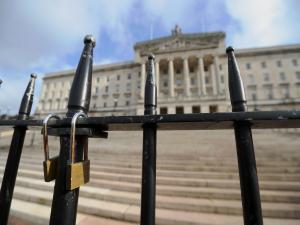
By David Young (PA)
Stormont parties appear set to ask the Treasury for a £1 billion-plus package to accompany any return of devolution in Northern Ireland.
The size of the potential pitch for extra Government funding was discussed at a meeting of the four largest parties and the head of the Northern Ireland Civil Service, Jayne Brady, in Belfast on Thursday.
Parties are also likely to seek longer-term funding commitments from the Treasury alongside a one-off package to address Stormont’s short-term funding crisis.
Such measures could include reform of the Barnett formula used by the Government to calculate the block grant allocated to Northern Ireland each year.
Civil servants have estimated that Stormont departments need hundreds of millions of pounds in extra funding to maintain public services at their current level this year.
Hundreds of millions more would be needed to settle a series of public sector pay disputes in the region.
Senior civil servants are currently running public services in the region in the ongoing absence of devolution.
The DUP is blocking the powersharing institutions in protest at post-Brexit trading arrangements.
The four parties eligible to participate in a ministerial executive if it was resurrected – Sinn Fein, the DUP, Alliance and UUP – attended the meeting convened by Dr Brady at Stormont Castle.
On the agenda was a discussion on Stormont’s financial problems and the challenges arising from the current governance gap.
After the meeting, DUP leader Sir Jeffrey Donaldson addressed mounting speculation that his party is preparing to return to Stormont.
Sir Jeffrey said the DUP’s focus remained “very firmly” on finding a resolution to the dispute over Brexit’s Northern Ireland Protocol.
He said discussions continued with the Government on potential legislation that would address its concerns over sovereignty and access to trade with Great Britain.
“The DUP focus remains very firmly on getting a resolution to the difficulties we’ve had that have arisen from the Northern Ireland Protocol,” he said.
“We continue to engage with the Government on finding solutions that restore our place within the United Kingdom and our ability to trade within the internal market of the United Kingdom. And that work continues and is essential if we are to see Stormont restored on a stable basis.”
On Stormont’s financial problems, Sir Jeffrey said it was vital that changes were made to the Barnett formula.
“This isn’t a one-year problem,” he said. “And therefore we’ve got to look to Treasury for a solution that delivers a needs-based approach to our budget.”
When asked by reporters whether it was a case of when, not if, devolution will return, he said: “I’m an optimist and I am in the business of delivering for the people of Northern Ireland, the people who’ve supported us.
“Of course, we’ve been very clear, we want to see Stormont restored, but it must be restored on a stable and sustainable basis.
“That means addressing fundamentally the issues related to the protocol, the harm that has done to our place in the United Kingdom and our ability to trade with our biggest market. That remains for me what is essential in order to see Stormont restored on a stable and sustainable basis.”
Sinn Fein vice president Michelle O’Neill called on the DUP to “get off the fence” and show the political will to restore powersharing.
“Civil servants are in a very desperately difficult situation in taking decisions where there’s no democratic accountability,” she said.
“That’s not good enough for the public here.”
Ms O’Neill rejected the suggestion it may be the autumn before the DUP return to Stormont.
“I don’t think the autumn timeframe is an acceptable timeframe,” she said.
“I think where we need to be is around the executive table today working together, actually trying to stave off some of the worst impact of the Tory austerity agenda.
“But I think that while today’s meeting is welcome, it’s good that we’re here, it’s good that we’re engaged, but what we need to hear is what’s the political will, we need to hear the DUP are going to get off the fence and actually join the rest of us and get into the executive.”
The meeting with Dr Brady followed last week’s local council elections in Northern Ireland.
The elections saw Sinn Fein emerge as the largest party in local government for the first time in Northern Ireland, replicating its result in the Assembly election last year when it became the biggest party at Stormont.
While the DUP lost its position as the largest party at council level, it consolidated its position as the main unionist party by winning the same number of seats as it secured in the last local government election in 2019.
Alliance Party deputy leader Stephen Farry said the Stormont parties needed to make a “collective ask” to Treasury on the size and shape of a financial package that might accompany a return to devolution.
They said the sum needed was in excess of £1 billion.
“Obviously, there’s a huge pressure in the public finances, pushing a billion pounds already,” he said.
“And to do proper transformation we would need some resources above and beyond that as well. So I think we are talking in and around a billion and potentially more than that in practice.
“Obviously, this will involve a certain negotiation with the Treasury. There will be some degree of resistance there, there will be a degree of scepticism, not least because we’ve had previous financial packages for Northern Ireland before, which haven’t always necessarily transformed the situation, they have maybe plugged gaps but haven’t really seen major change in terms of outcome.
“So lessons will have to be learned from that and I imagine there will be a degree of conditionality from the Treasury and wanting to see Northern Ireland actually adhering to whatever commitments we can give in return for any support that they may be able to provide.”
Dr Farry said Stormont officials were working up documents on the financial picture to inform further talks among the parties on what they may ask from the Treasury.
UUP leader Doug Beattie described the meeting with Dr Brady as “sombre”, given the scale of the funding issues facing Stormont.
However, he said it was “positive” that parties were working together on the issues.
“But the reality remains exactly the same, we’re in a dire situation, a dire situation that is going to be difficult to get out of,” he said.
“Even when we manage to get an executive up and running again, and I think we will, it’s all about when not if, when we get the executive up and running it will not get any easier, it’ll still be a difficult situation. But we may have the levers to make it slightly easier.”
Mr Beattie said Stormont needed around £1.1 billion in additional funding from the Treasury.
“That’s the basic baseline figure that maybe we’re talking about, but do add on to that any monies we need for transformation, if we’re going to invest to transform, that’s going to bump that up as well,” he said. “So we are looking at excess of a billion pounds, I think.”
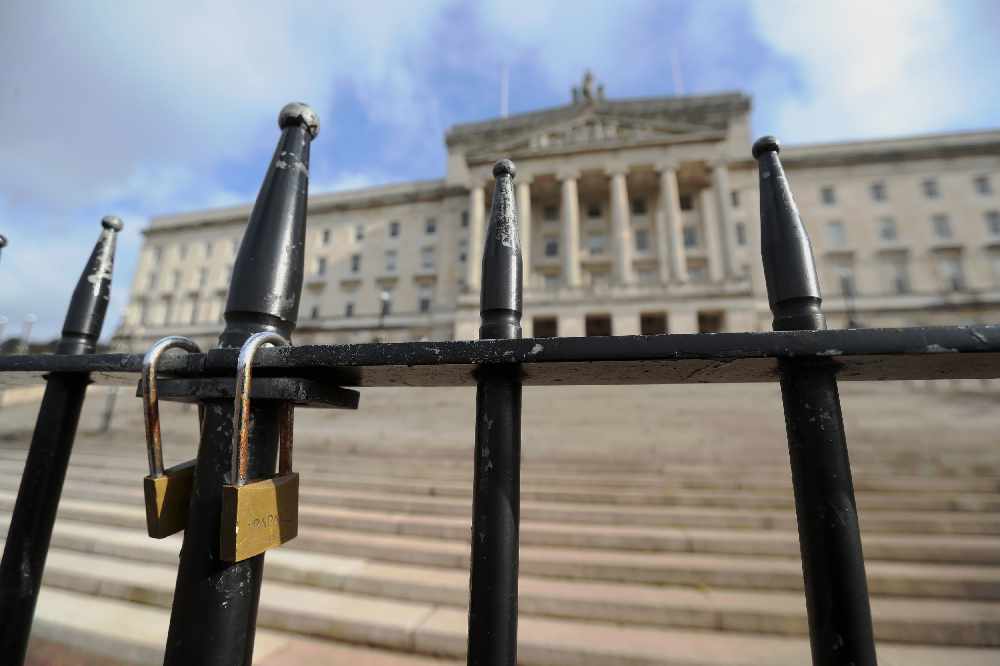


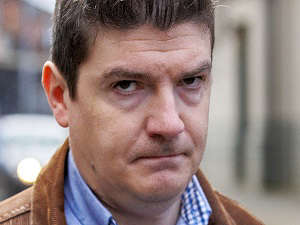 Former Sinn Fein press officer jailed for child sex offences
Former Sinn Fein press officer jailed for child sex offences
 Mixed reaction from Northern Ireland’s political leaders to Trump presidency
Mixed reaction from Northern Ireland’s political leaders to Trump presidency
 Two police officers injured after car rammed
Two police officers injured after car rammed
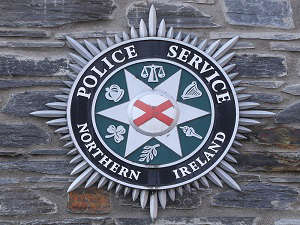 Pipe bomb attack on house ‘could have killed or injured’ – police
Pipe bomb attack on house ‘could have killed or injured’ – police
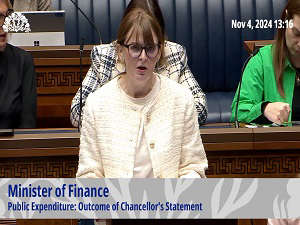 ‘Unprecedented’ Budget not enough to make up for austerity – Archibald
‘Unprecedented’ Budget not enough to make up for austerity – Archibald